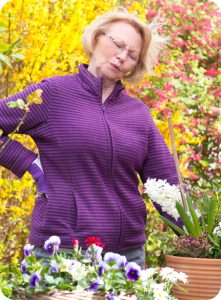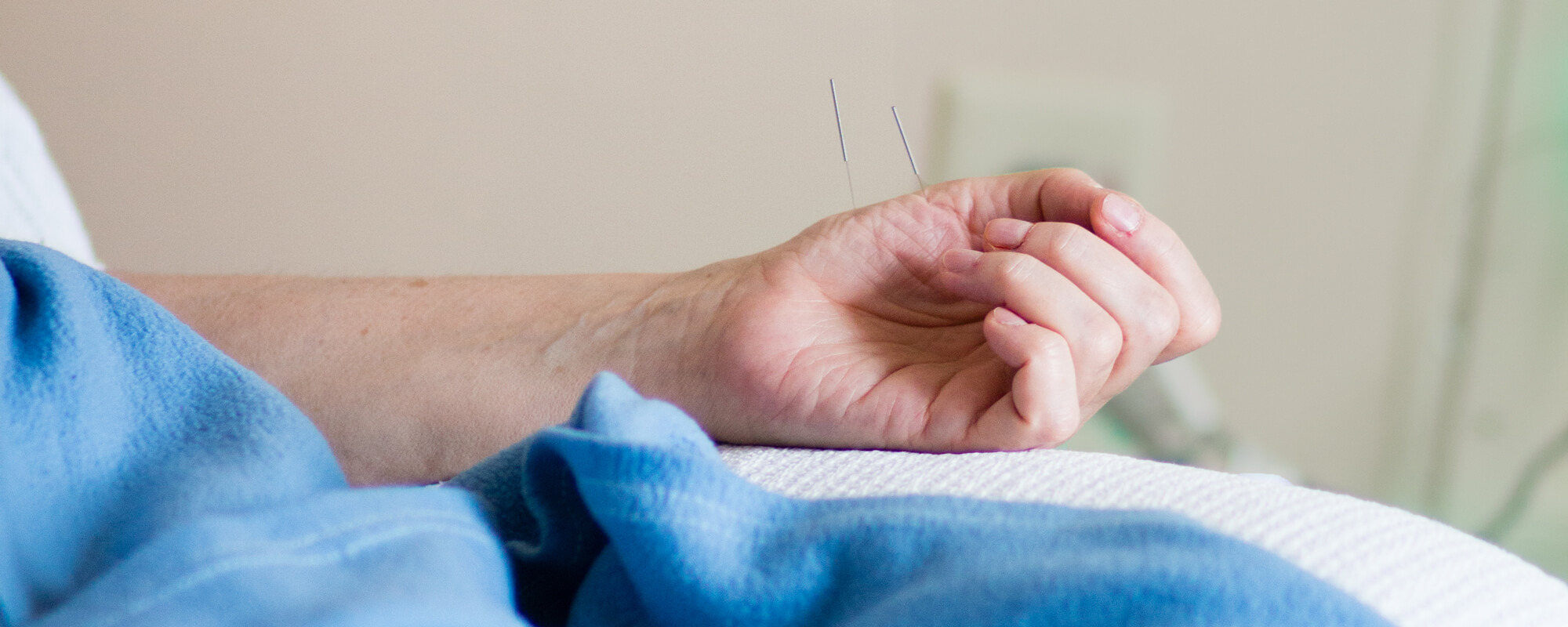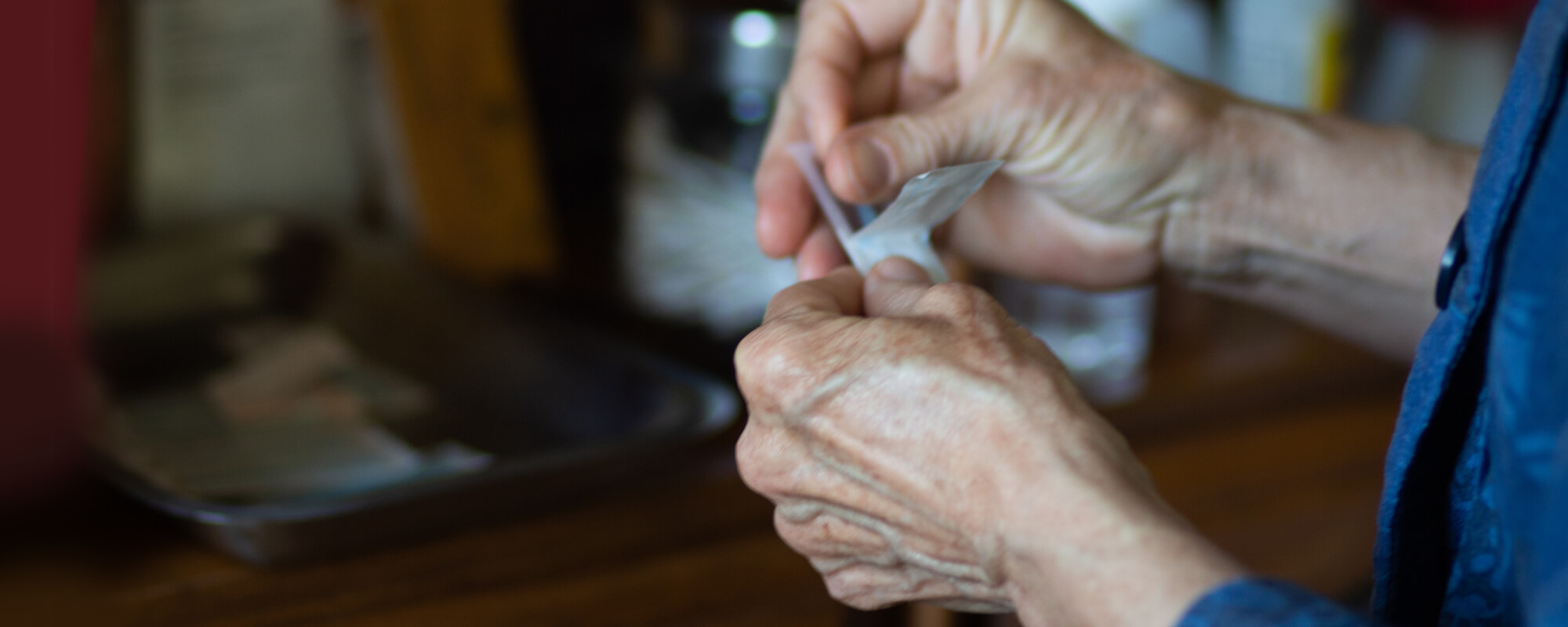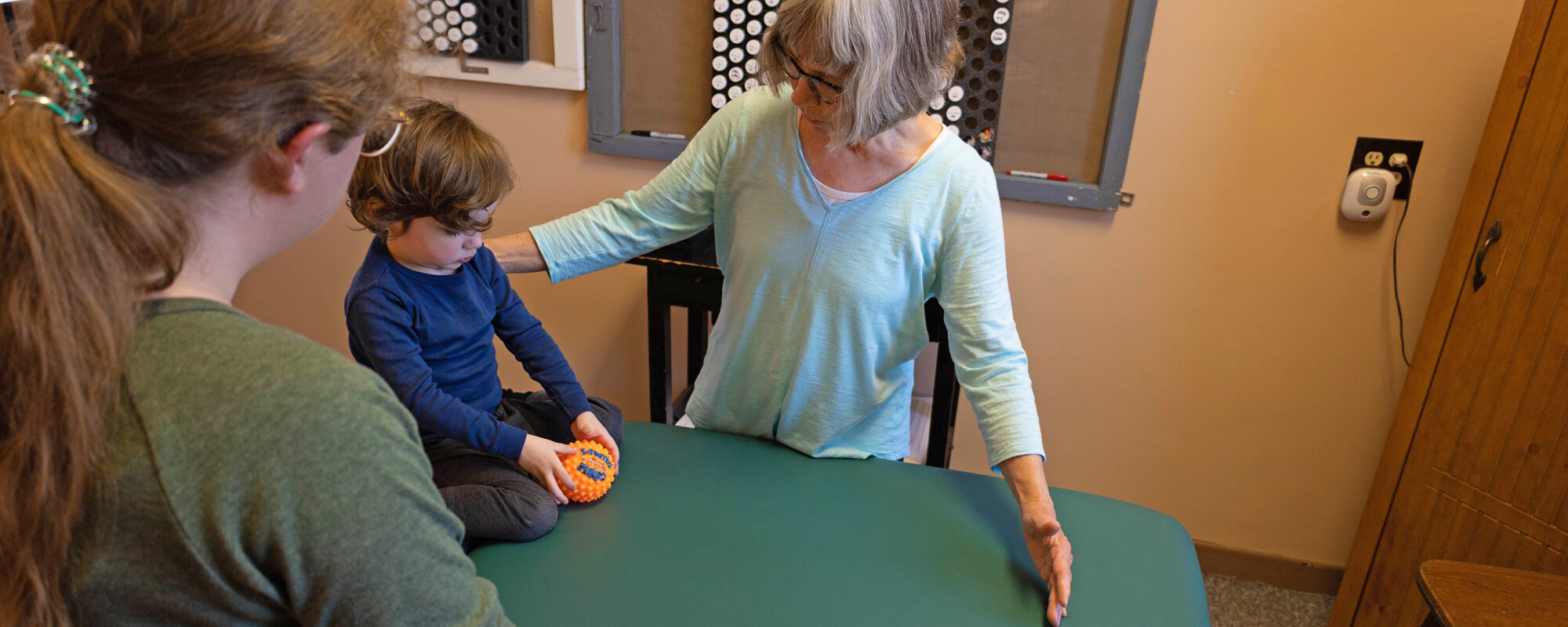- WE MOVED !!!
-
 Professional Acupuncture & Physical Therapy1118 East Superior Street
Professional Acupuncture & Physical Therapy1118 East Superior Street
Duluth, MN 55802(218) 724-3400 Clinic Hours
Mon8:00 am - 4:30 pmTue1:45 pm - 4:30 pmWed8:00 am - 4:30 pmThu8:00 am - 4:30 pmFriCLOSED

- Long Covid Booklet
Acupuncture
Using Acupuncture to Treat PTSD

Post-traumatic stress disorder or PTSD is usually associated with past and present military personnel. However, PTSD can affect anybody who has had some sort of traumatic or life changing event, such as a car crash, physical abuse, natural disasters or even the death of a loved one. Any situation causing emotional, physical or mental trauma can result in PTSD. In the U.S. alone, it is estimated around 24 million people are affected by PTSD. That means there are a whole lot of people who need help coping with the disorder. Luckily, Traditional Chinese Medicine offers hope for those people.
Some symptoms of PTSD include insomnia, anxiety, irritability, flashbacks, as well as feelings of shame, despair and hopelessness. All of these can lead to problems at work and home. It can also lead to serious health problems like clinical depression and even alcohol and drug abuse. The effects of PTSD are far-reaching and can be a lifelong battle for those afflicted with it.
Acupuncture treatments for PTSD focus on specific auricular points on the body. These points are responsible for controlling areas of the brain that help control nervous functioning while decreasing stress levels. Many military personnel experiencing PTSD can become violent if they are not helped. This is why the military is starting to offer battlefield acupuncture for soldiers in the field even before they are discharged from active duty. The Pentagon has been investigating the benefits of acupuncture for PTSD and so far, it has been found that combat veterans were relieved of most of their symptoms and their levels of depression and pain were greatly reduced.
Many PTSD sufferers are leery of opening up about their trauma and thus are reluctant to seek psychological counseling. This is where acupuncture can play a key role in helping these individuals. While acupuncturists should be taking an in-depth medical history for each patient they treat, the questioning does not need to become as personal as that required when seeking psychiatric help. This makes it easier for PTSD sufferers to feel safe and somewhat more relaxed. Also, acupuncture has been shown to provide rapid benefits to patients through faster healing, whereas psychological counseling can take years.
Auricular acupuncture is especially beneficial for those suffering from PTSD. There are a multitude of auricular acupuncture points that specifically focus on different areas of the brain. For instance, there is a point located at the base of the ear, where the ear lobe attaches to the side of the head that is labeled the limbic point. This point specifically addresses emotional life, the formation of memories, amnesia and alcohol or drug dependency. By needling this point, the patient can get relief from one or all of the aforementioned symptoms. This is quite remarkable and it makes the treatments require fewer needles.
Those suffering from PTSD should consult a doctor about the proper treatment and also discuss alternative medical options like acupuncture. If you or somebody you know suffers from PTSD, please consider acupuncture as part or all of the treatment protocol. Call (218) 724-3400 to get scheduled with Heidi.
What Type of Fibromyalgia Are you?

One of the best things you can do to get relief from your Fibromyalgia symptoms is to see a Chinese Medicine practitioner who can give you a diagnosis based on various principles of organ health and energy flow. They can then help customize treatment approaches tailored to your individual patterns.
To give you an idea of what different patterns associated with Fibromyalgia can look like, here is a general breakdown of the most common Chinese Medicine diagnoses we see in these patients. Do you relate to any of these? Fibromyalgia patients will often present with patterns of stagnation or deficiency, and in many cases a combination of both. (You can be a combination, or be dealing with a completely different pattern, but be sure to see your acupuncturist for a more precise personalized assessment!)
STAGNATION causes pain
Liver Qi Stagnation
Stagnation often starts in the liver. The liver is the organ, in Chinese Medicine, that is responsible for the smooth flow of qi (energy) in the body. That smooth flow can be hindered by many stagnating factors, including pathogens, stress, toxins, overexertion, lack of proper sleep and poor nutrition. The liver must contend with these and keep qi moving. Talk about a lot of pressure! As it gets hindered, so does the flow, causing more stagnation. This manifests as pain in the body along with feelings of being ‘stuck’.
Signs of Liver Qi Stagnation are:
anger, irritability, headaches, muscle stiffness in neck and shoulders, insomnia, restlessness and irritable bowel syndrome (as stagnant liver qi directly affects digestion).
The tongue will look slightly dusky or slightly puffy
The pulse (felt at the radial artery) will feel “wiry” in some positions, like a guitar string
Blood Stasis
According to TCM, the blood follows the qi. So, as qi stagnation gets more severe, it can lead to blood stasis. This sets you up for even more intense symptoms.
Signs of Blood stasis are:
aches and pains in the whole body, burning or gnawing pain, numbness or tingling in extremities, and stabbing headaches.
The tongue can appear almost purple and the veins under the tongue may look distended.
The pulse will feel wiry or even irregular
DEFICIENCY causes weakness
Qi and Blood Deficiency –
Usually this refers to “spleen qi deficiency” and “heart blood and/or liver blood deficiency”. The spleen is a source of “gu qi” (the energy we get from food), which is an important part of post-natal qi, (the energy we replenish through food and air intake). It can get damaged by poor diet or attack by an overstressed liver and leave us feeling weak and depleted. The heart and Liver have important roles in blood storage and flow. Blood deficiency in the heart disturbs the spirit. Liver blood deficiency manifests in stiff, dry muscles and joints.
Signs of qi and blood deficiency are:
chronic fatigue, exhaustion, dizziness, dull headache, muscle weakness and numbness, insomnia, anxiety, palpitations and depression.
The tongue will usually look pale
The pulse will feel thready, weak and deep.
Kidney Deficiency (either Yin, Yang, Qi or Essence Deficiency)
As the kidneys are the root of the pre-natal qi in the body (the energy we are born with) this can be a congenital deficiency or a result of depleting our reserves over time.
Signs of kidney deficiency can vary based on the different types but in general there can be:
sore lower back and knees, impotence, infertility, low libido, bladder symptoms, temperature dysregulation: feelings of cold (yang deficiency) or hot flashes (yin deficiency) or both.
The tongue can be pale (qi and yang deficiency) or red and dry with cracks (yin and essence deficiency)
The pulse may be thin, weak and deep
You may recognize a combination of your own symptoms throughout these pattern descriptions, but in order to get the best personalized care on your healing journey, get to a diagnostic expert who has the tools to help you heal! Schedule an appointment with Heidi today by calling (218) 724-3400
Why You Should Get Regular Acupuncture Treatments

Everybody knows you should see your family physician at least once a year and your dentist at least twice a year. But not everybody knows about acupuncture and Traditional Chinese Medicine and the many benefits it can provide for you. If you start incorporating acupuncture into your health and wellness regime, you may not have to rely on the family physician so much for those minor little issues. Let’s look at how getting regular acupuncture treatments can help you stay happy and healthy.
There are many ways acupuncture treatments can change a person’s life. One of the most noticeable is acupuncture can get you to look at your health from a completely different perspective. This could mean you might start taking a more in depth look at your health, which may allow you to veer away from some of the mainstream medical practices such as multiple pharmaceuticals. Many long-term acupuncture patients find they no longer need all the medications prescribed by their family physician, because the symptoms have been controlled using acupuncture.
Acupuncture is great for prevention. Because regular acupuncture treatments can balance hormones and boost immunity, there is a good chance you won’t need that annual flu shot or all those over-the-counter cold medications. A trained acupuncturist can spot a problem like decreased immunity from a mile away. It can appear as symptoms such as chronic fatigue, insomnia and even body temperature fluctuations. A couple of treatments can make a big difference.
What about relieving some of that extra stress we all deal with? Yes, regular acupuncture treatments can keep that at bay too. Many people don’t equate being poked with tiny needles as a relaxation technique, but it truly is relaxing. Many patients actually fall asleep after or while the needles are being placed. And the effects can last for days or even weeks. So the next time you feel irritable and overwhelmed, check out your local licensed acupuncturist.
Regular acupuncture treatments can help you save money. What? It’s true. This goes back to the previous benefits. If you don’t need as many pharmaceuticals, you will ultimately save money. Also, conditions like stress, anxiety, fatigue and depression can keep you from going to work, possibly costing you several days of pay. But with regular acupuncture treatments, your moods can be more effectively managed and you won’t need to miss work as frequently.
And the most popular reason to get regular acupuncture treatments is that it will help you remain pain free. We all have aches and pains. But research has shown acupuncture is more effective than opioids for controlling things like arthritic pain in the joints. It is also be incorporated into hospital emergency rooms throughout the United States, so people don’t need as many pain medications. As a matter of fact, in Asia, acupuncture is sometimes used by itself during and after surgical procedures to treat pain.
While many of you may have a needle phobia, don’t let that deter you. Acupuncture is part of an amazing medical system that has been around for nearly 3,000 years. In comparison, Western medicine has only been around for about 200 to 250 years. That puts things in perspective a little, especially when you consider most people in Asian countries live longer, happier, healthier lives than almost everybody in the United States.
There’s no better time than the present to start a good habit. Just be sure to seek out a fully trained and licensed acupuncturist like Heidi LaBore Smith, MS, L.Ac., PT in Duluth MN. Your whole life just might change for the better.
Acupuncture and Minority Mental Health: An Underutilized Connection

In recognition of Minority Mental Health Awareness Month this July, we aim to shed light on an unconventional, yet increasingly valuable, approach to mental health treatment – acupuncture. This ancient practice, long revered in Traditional Chinese Medicine, has been making strides in modern integrative medicine and could offer unique benefits to minority populations battling with mental health issues.
Understanding Minority Mental Health
Minority Mental Health Awareness Month was established with the purpose of creating an inclusive and empathetic dialogue about mental health issues that disproportionately affect racial and ethnic minority groups. These communities face unique challenges, such as greater exposure to stressors like discrimination, economic disparity, and language barriers, which can directly contribute to mental health issues. Furthermore, they often encounter cultural stigma and lack access to adequate mental health resources, making the situation even more challenging.
The Potential of Acupuncture in Mental Health Treatment
Acupuncture, an age-old component of Traditional Chinese Medicine, has been used for centuries to treat various ailments by inserting thin needles into specific points on the body. These acupuncture points are believed to balance the body’s energy, or “qi,” and promote healing. Recent scientific studies have indicated that acupuncture can help alleviate a range of mental health disorders, such as anxiety, depression, and post-traumatic stress disorder.
A meta-analysis published in the *Journal of Psychiatric Research* in 2021 found that acupuncture can significantly reduce symptoms of depression, rivaling the effectiveness of cognitive-behavioral therapy and medication. Moreover, the *Journal of Alternative and Complementary Medicine* (2021) published a study revealing that acupuncture could decrease anxiety symptoms, even for those with generalized anxiety disorder.
Accessibility and Acceptance in Minority Communities
Acupuncture may hold special appeal to minority populations due to its holistic approach, non-invasiveness, and minimal side effects, offering an alternative for individuals wary of traditional psychiatric medications or therapy. It aligns well with many cultures’ emphasis on holistic and natural healing, potentially reducing the stigma associated with mental health treatment.
Moreover, community acupuncture clinics, providing services on a sliding scale, are growing across the country, making this therapy more affordable and accessible to economically disadvantaged communities.
Bridging the Gap with Research and Education
While promising, the research on acupuncture’s effectiveness for mental health disorders needs more randomized controlled trials, particularly focusing on minority populations. Addressing the diversity gap in research can help identify the specific needs and responses of these communities, tailoring treatments more effectively.
Educating minority communities about acupuncture and other integrative health options is also crucial. By incorporating cultural competence and sensitivity into health education, we can empower these communities to seek out and receive the help they need.
Let’s come together to create more inclusive mental health support systems. Be part of the change by raising awareness about the potential of alternative treatments like acupuncture. Remember, mental health is universal, and our approaches to addressing it should reflect the diverse needs of all communities.
Acupuncture Points Parents Can Use to Help Kids

Large Intestine 4 (LI 4) Found along the large intestine energetic pathway, located between the webbing of the index finger and the thumb, on the mound of flesh created when the two fingers are held together. This point improves intestinal function and helps relieve constipation, diarrhea and abdominal pain.
Stomach 25 (ST 25) Located two thumb-breadths away from the belly button on both the left and right sides. Stomach 25 is very useful for relieving diarrhea, constipation and other digestive/abdominal issues. This is another great pressure point to help your kids deal with that upset stomach.
Stomach 36 (ST36) Located on the lateral side of the lower leg, about four finger-breadths from the lower border of the patella or kneecap. This point is considered an overall energy and immune-boosting point. It can help with digestive issues, such as diarrhea, which are sometimes associated with a cold or flu.
Yin Tang Located directly between the inner ends of the eyebrows. This point is wonderful for relieving sinus pressure, curing watery eyes and decreasing stress, which may allow for better sleep. Many acupuncturists use the point in all their patients because of its calming effect. So if you have a little one that can’t sleep, massaging this point can be very helpful.
Du 20 (D20) Located on the top of the head, midway between the apexes of your ears. This point is known as governing vessel 20 (GV 20). It is one of the most powerful points in the acupuncturists’ arsenal. It raises emotional energy, which in turn can help alleviate depression. Applying pressure or lightly tapping this point is a great way to counter depression on your own and it can be done pretty much anywhere. Depression is becoming more prevalent with children because of the lack of personal interaction and bullying.
Parents can massage these points or apply light pressure and help their kids in so many ways. Give these points a try the next time your kids are experiencing illness or emotional issues. Not only is it a great way to help them heal, but it also increases bonding with your kids, which is something every child needs.
